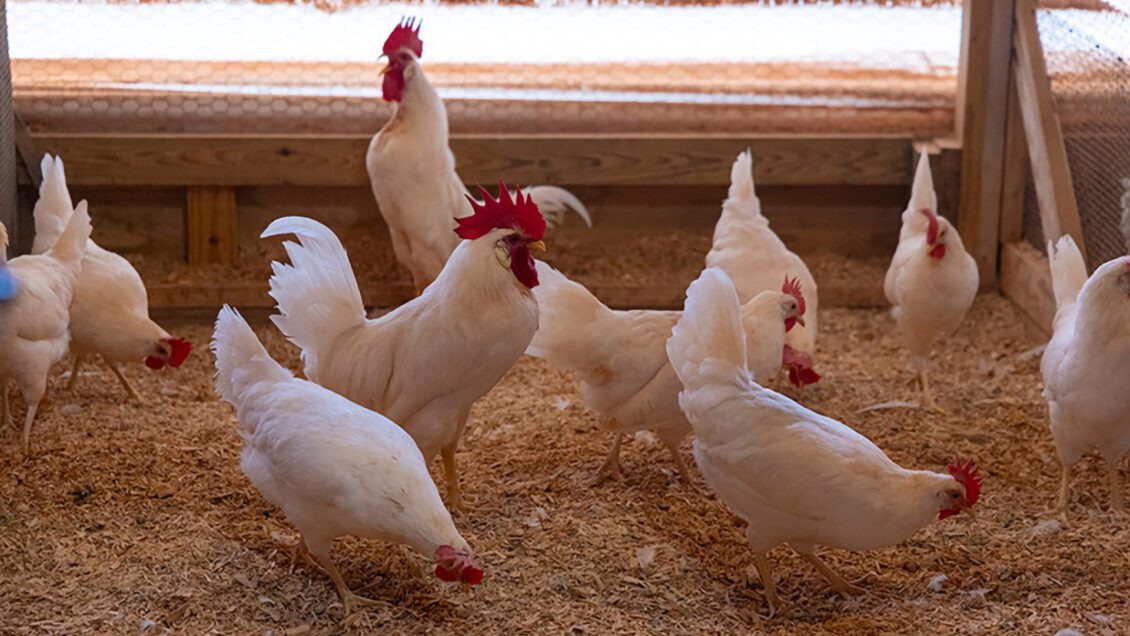Managing a chicken coop can be a rewarding experience, but its crucial to understand the importance of maintaining a healthy environment for your flock. One way to achieve this is by learning how to control ammonia in chicken coops naturally. Ammonia buildup can pose serious health risks to chickens, affecting their respiratory systems and overall well-being. Let’s explore effective strategies to naturally reduce and manage ammonia levels in your chicken coop.

Understanding Ammonia in Chicken Coops
Ammonia is a colorless gas with a strong odor produced by the breakdown of nitrogenous waste from chicken droppings. It can irritate the eyes, throat, and lungs of both chickens and humans. Therefore, keeping ammonia levels in check is essential for healthy chickens.
Causes of Ammonia Buildup
Ammonia buildup is primarily caused by inadequate ventilation, excess moisture, and poor management of chicken litter. Understanding these causes can help you implement the right measures to reduce ammonia levels.
Natural Methods to Reduce Ammonia Levels
Enhance Ventilation
Ensuring proper ventilation is the first step in controlling ammonia levels. Fresh air helps dissipate ammonia gas and reduces moisture, which is a breeding ground for bacteria and ammonia production. Installing windows, vents, or small fans can improve air circulation.
Use Dry Bedding
Utilizing dry, absorbent bedding such as straw, wood shavings, or hemp can help keep moisture at bay. Regularly changing the bedding is crucial for minimizing ammonia. You can learn more about safe bedding options in our article on safe herbs for chickens.
Regular Cleaning
Maintaining cleanliness in the coop is vital. Regular cleaning and removal of chicken droppings reduce the accumulation of ammonia-producing waste. A clean environment promotes healthy chickens and reduces the risk of respiratory infections, as discussed in our guide on treating respiratory infections naturally.
Natural Additives
Adding natural substances like lime or zeolite to the coop bedding can neutralize ammonia. These compounds absorb moisture and reduce ammonia gas emissions. Zeolite, a natural mineral, is particularly effective in managing odor and moisture.
Natural Remedies and Supplements
Herbs and Essential Oils
Herbs such as mint, rosemary, and lavender have natural antibacterial properties. Using these herbs in the coop can help control odors and reduce ammonia levels. Our guide on herbs for chickens provides more insights into safe herb usage.
Probiotics for Chickens
Incorporating probiotics into your chickens’ diet can improve their gut health, reducing ammonia production from their droppings. Probiotics aid in better digestion and nutrient absorption, leading to less nitrogenous waste.
Long-term Strategies for Ammonia Control
Proper Coop Design
Designing your coop with proper ventilation and drainage in mind is crucial. Elevated coops and slanted floors can prevent water accumulation and promote better airflow.
Regular Monitoring
Regularly monitoring ammonia levels using odor or ammonia detection strips helps you take timely action. Keeping track of these levels ensures a healthier environment for your chickens.

Frequently Asked Questions
What are the signs of high ammonia levels in a coop?
Signs include a strong ammonia smell, watery eyes, respiratory distress, and reduced egg production in chickens.
How often should I clean my chicken coop?
Regular cleaning every week is recommended, but it may vary depending on the number of chickens and the size of the coop.
Can ammonia affect chicken egg production?
Yes, high ammonia levels can stress chickens, leading to a decrease in egg production.
For more advice on chicken care, visit The Fewell Homestead where you will find additional resources on maintaining a healthy chicken flock.
This article contains affiliate links. We may earn a commission at no extra cost to you.











